Located in the northwestern border region of China, Bortala Mongol Autonomous Prefecture in Xinjiang Province is known as “the silver grassland”. It is the response support area of Hubei Province. In the summer of 2018, I had the honor to participate in Wuhan University’s intern project in the Bortala region. Though I returned almost half a month ago, the unique charm of the local customs and practices there still linger on my mind.
The scenery
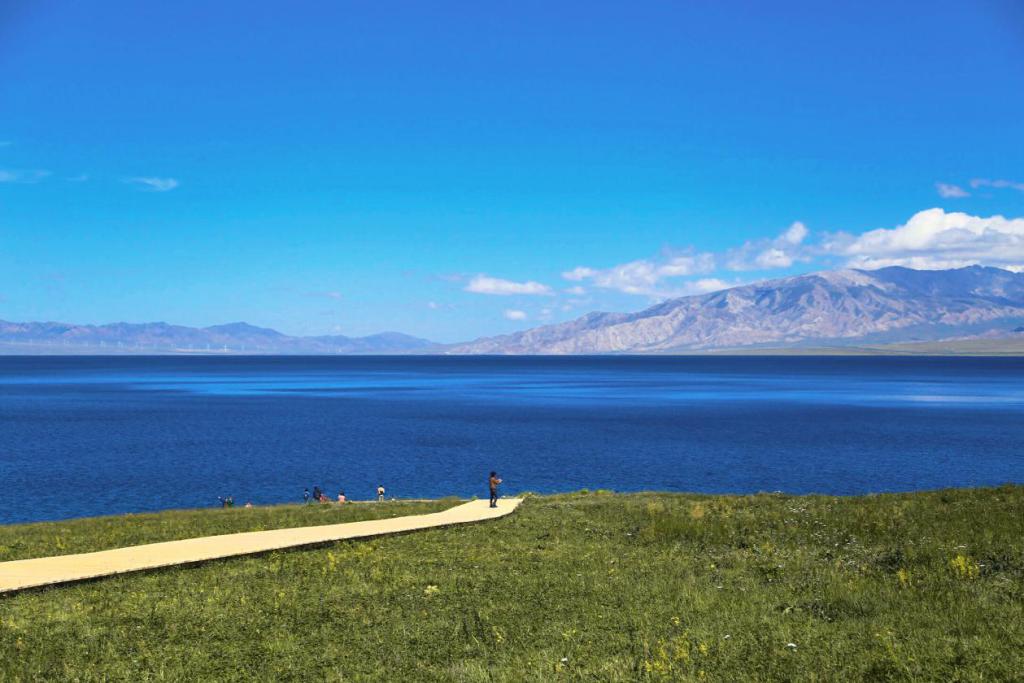
Sayram Lake, one of the most beautiful sights in the region, is crowned as “the last drop of tear of the Atlantic Ocean”. In summer, the lake exhibits the beauty of four seasons. The moving clouds endow the lake with a gorgeous view- now azure blue, then dark green, sometimes moon white, and then sunset orange. It is a place for people to indulge and dream, escaping from the worldly bustle and returning to the embrace of nature.

The carpet-like wild flowers by the Sayram Lake seem to lead to a mysterious fairy tale. One can feel the breeze, and smell the sea and soil. Believe me, it is such a magic wonderland that you will find it hard to leave.
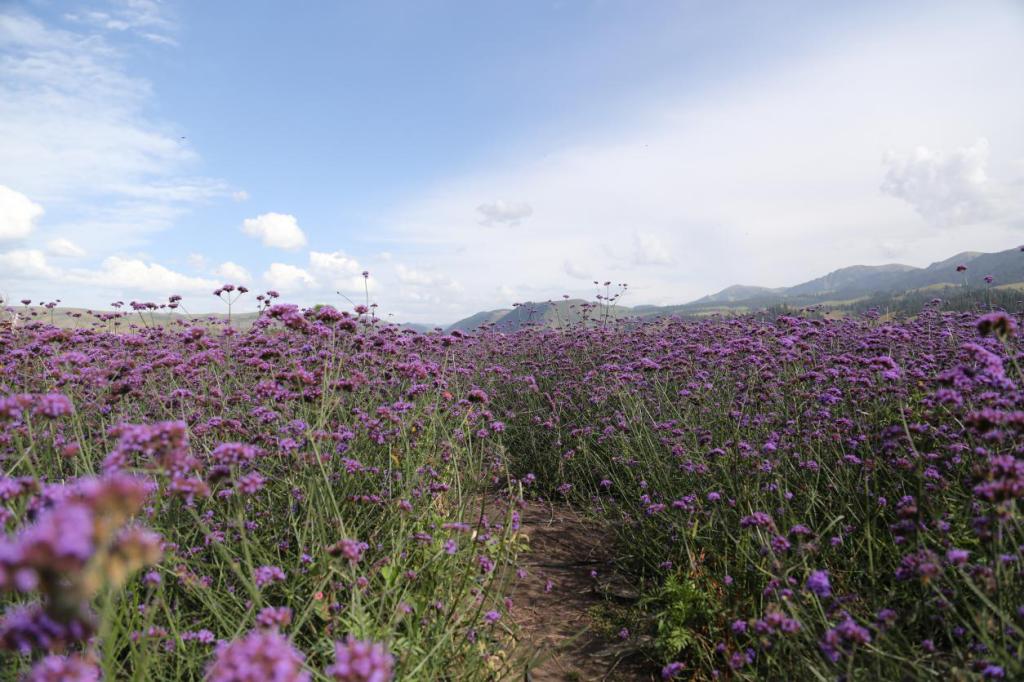
What does the sea of flowers look like in your mind? Here, the wild flowers absorb the essence of the sky and the earth - they flourish freely to create a worldly fairyland. There is a path among the flowers leading to the sky. If you encounter them one day, please leave them alone and keep this beautiful scenery in your heart.

It is said that the solemn and mysterious command beacon once witnessed Genghis Khan's majestic posture. Now, the stone piles representing best-wishes and blessings, and also the flags and the worship place are still there. Many people make their wishes for health and safety by circling around the stone piles, under witness by the heavens.
The animals
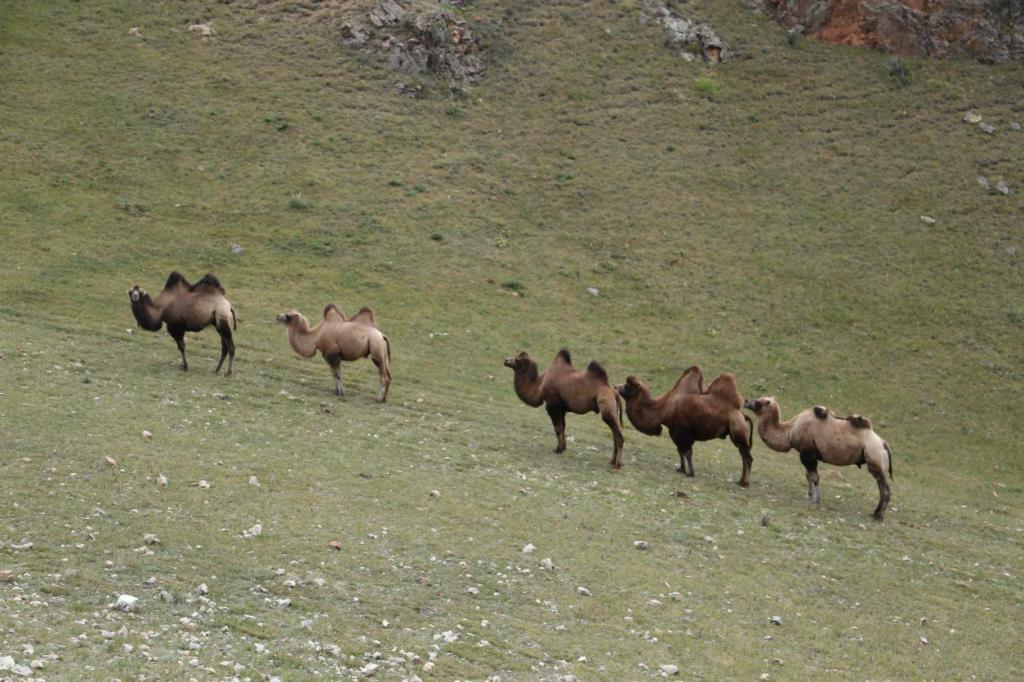
There are many wild animals in the region, among which wild camels are the most common. Unlike those carrying tourists at Crescent Springs, the magnificent and mighty wild camels here do not feel scared or languid. They are unhurried, enjoying a long halt by your side and gazing into your eyes. These animals are treasures of nature.
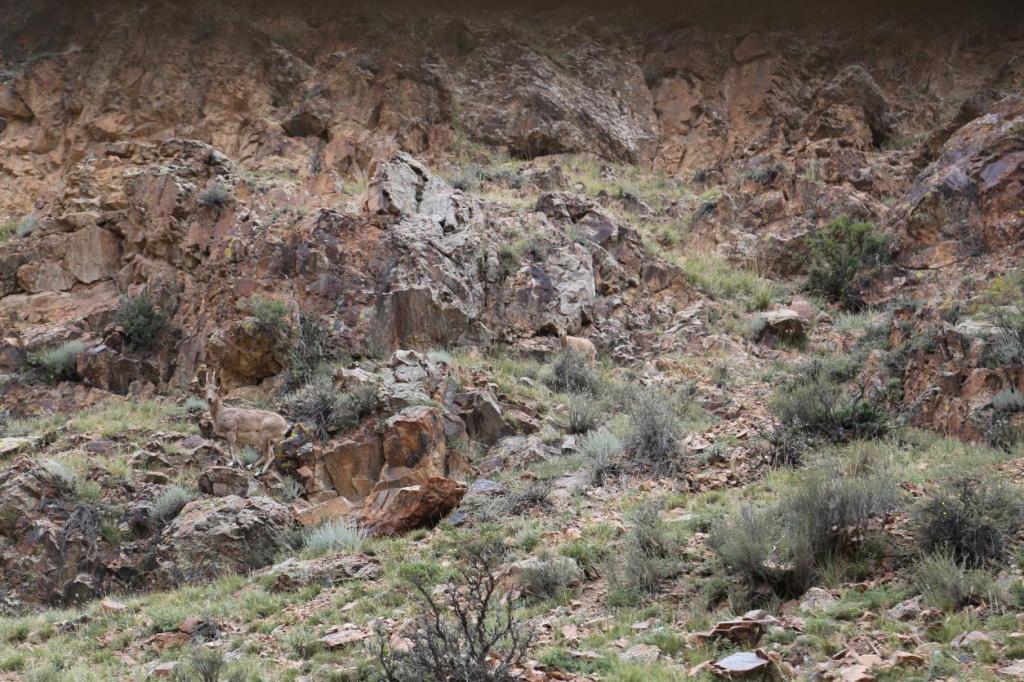
Don't regard this picture as showing just a bunch of rocks. Take a closer look, and you will find two gentle eyes looking at you. There are two subspecies of Chinese antelopes. One subspecies lived in the northwestern part of Xinjiang Province, already mostly extinct. It is said that many photographers looked for days but couldn't find them. And I was so lucky to take their shots.

This is a little dairy cow of aboriginal Tibetans, with glossy fur and lovely but timid temper. Its intimacy belongs only to its little master, also its only friend. The animals here are sons of nature, showing no fear of humans. They are calm, courageous and confident, and well nurtured.
The People
Tibetan children live in the deep mountains and lead a nomadic life with their parents. Although they have been in school, they are still unfamiliar with Chinese language. These children are very timid and shy, who sometimes peeped at us with their curious eyes. We taught one child to pose a “victory” gesture and took a picture of him. Though he was very nervous, tugging his clothes, the pure smile on his face showed his happiness.
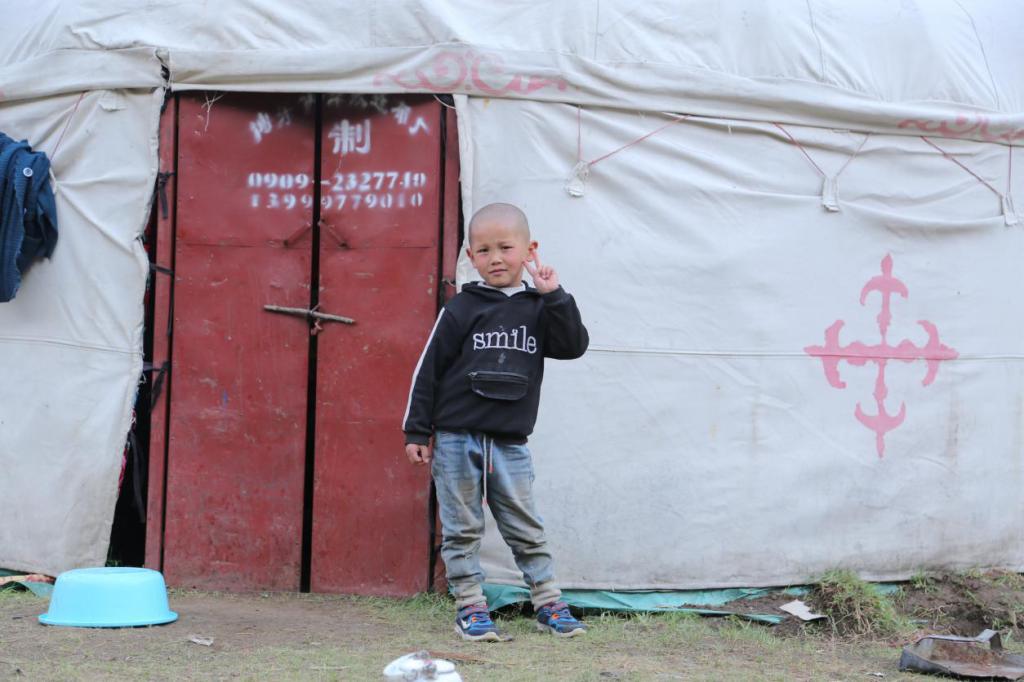
Bortala Mongol Autonomous Prefecture also has a unique toasting tradition. Firstly, people need to take three pebbles and circle the “wishing platform” three times. Then, pebbles are thrown high onto the top of the “wishing platform” for best blessings. In the end, everyone will receive a toast in a song, dip his or her finger in the wine to show respect to heaven and earth and then drinking it down. National belief and ritual culture have always been the most fascinating part of civilization, which reflect people’s piety to heaven and earth and also their passion and love for life.

Bortala Mongol Autonomous Prefecture is peopled by multi-ethnic groups, such as Han people, Manchus, Hui people, Mongolian people and Kazaks. During the Mid-Autumn Festival and National Day, people from the local Ministry of Transport brought colorful art and literature performances and gifts to every family in the village. The villagers were enjoying delicious mooncakes with a joyful smile.
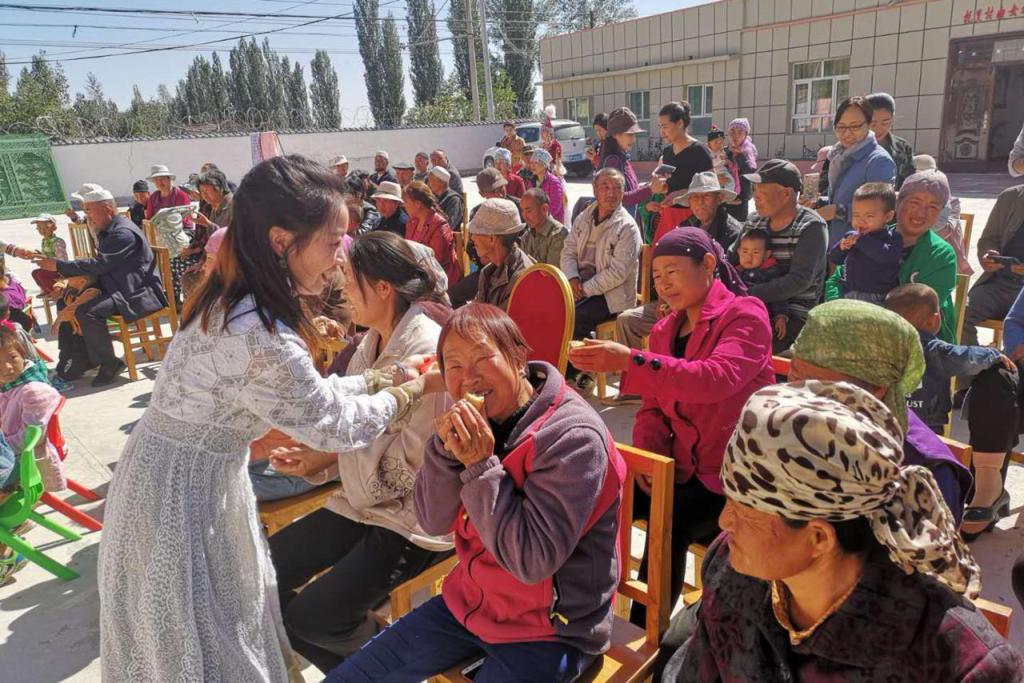
Rewritten by Lu Huixin, Edited by Zheng Lingling, Shen Yuxi, Hu Sijia & Shi Weiya